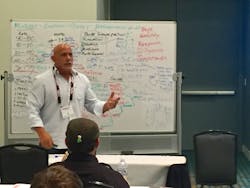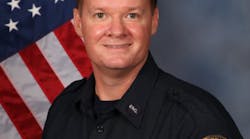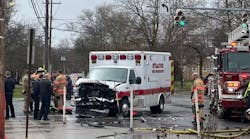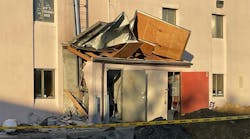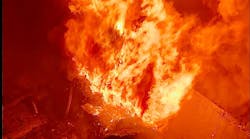To meet veteran Palm Beach County firefighter Ric Jorge, you'd never guess he carries the weight of a past mental health struggle.
Outspoken, jovial and full of positive energy, Jorge's sense of humor and everyman demeanor jump out at you right away, but talk to him for a moment about mental health in the fire service and his face turns serious and commanding.
Jorge was in Nashville at Firehouse Expo 2017 this week speaking to firefighters about his own struggle with post-traumatic stress disorder, which he says went unchecked for years before he finally hit a wall and realized he needed help.
"I was scared," said Jorge, who believes firefighters can train themselves to be stronger mentally in the same way they can on a physical level. "I thought I was losing my mind. I really was. I thought I was going crazy."
While Jorge says it wasn't any one particular event that brought him to PTSD, which can manifest in ways such as drug and alcohol abuse, violence, isolation or depression, it was one incident in particular that brought everything to the surface and made him realize something was wrong.
"It was one incident that brought mine to the surface. It was the vehicle that mine came out on. The straw that broke the camel's back. The tea pot where it finally starts whistling because the pressure has built up so high. That was it for me."
After finally admitting he needed and then got the necessary help, Jorge has recovered and spent the past 11 years dedicated to building an educational program for the fire service with the help of several experts in mental health and mental training, including Navy Seal teams and higher learning educators.
The hope is to not only instill the proper knowledge in firefighters but to also make sure fire educators focus on mental health and mental resiliency even at the start of someone's career, giving a firefighter the tools he needs to cope with the everyday stress of the job and process the trauma before it becomes a huge psychological burden.
"All I care about is that the message is heard. I don't care where it's heard, because my loyalty is with the fire service."
The challenge Jorge lays out is for firefighters to change their mindset from fear-based to challenge-based. Having the mindset of trying to meet a challenge as opposed to the fear of failure on the job can help you better control your emotions, and better emotional control can alter your biology and make you a better firefighter by enhancing physical performance and developing better critical thinking skills.
"We want to catch you on the front end before it occurs so that you can recognize when you're going through difficult times, and issues about being able to self-regulate. Whether its outbursts or emotional or whatever. Those are the mental queues and the physical queues that will come up, and then you can say, 'You know what? I need to go talk to somebody' and give yourself the permission because you know what's coming.
"And hopefully from the educational aspect of resiliency training, your officer and your other people will recognize when you're going through it, and they'll be there and be able to support you, because there's nothing worse than having to go through something like this on your own. And I know that from first-hand experience."
A big responsibility also lays with the fire service itself. It's no secret that bravado and even shame can lead a firefighter to bottle up a mental health problem they might be having, but Jorge wants every firefighter to know that they are never alone.
"It's emasculating. It's embarrassing. It's more than embarrassing. It's humiliating. And we tell ourselves that because we fancy that we're good at this, and we are. But we've been so good at this and so mentally tough, and then that one day comes where you say 'What the hell is going on?' Who are you going to talk to? How are you going to know when you haven't even been educated on it?"
For anyone out there who may feel like they want to reach out to someone, Jorge suggests peer groups and perhaps the chaplaincy as good starting points. There also needs to be a mental health professional who understands the culture firefighters live within who can understand how to discuss the particular stresses they face.
"We have to get the common knowledge out there. We have to get them to understand that this is more than just a training issue that can create training scars. This can lead you down a path of self-destruction, and we can prove it through science.
"At some point we have to make a decision, and I made mine. I don't ever want anyone to go through this alone, and on top of that, if we can help, it's icing on the cake."
